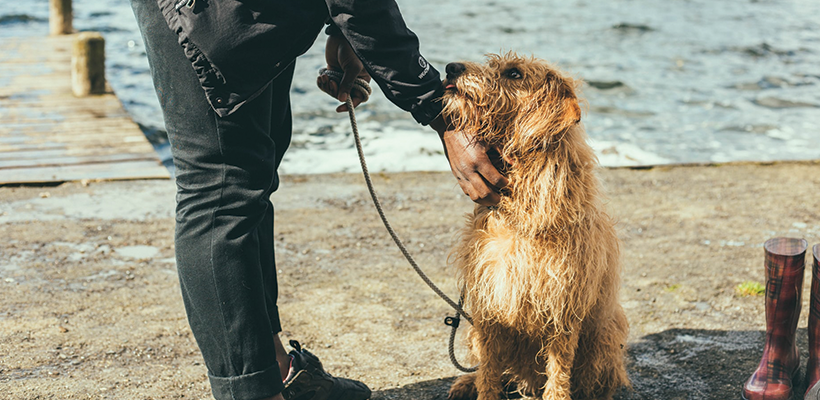
This article is contributed by guest author Lisa Hunchenko
Senior Dogs: How to Help an Old Dog Stay Happy, Healthy and Safe
Aging in dogs occurs at different times, depending on the breed, the size of the pet, and heredity. On average, the elderly age in dogs begins at seven years old – the pet’s metabolism slows down, activity decreases, and the animal requires special care.
As a responsible pet owner, you should be aware of any possible age-related changes in your dog’s health and behavior. This will allow you to help your four-legged friend navigate aging and decrease the amount of stress and confusion in its late years.
In this article, we will discuss the most common health conditions in dogs provoked by aging and methods to treat them, as well as several recommendations on feeding, walking, and taking care of your dog. Continue ready to ensure that you and your pet are prepared to face age-related changes.
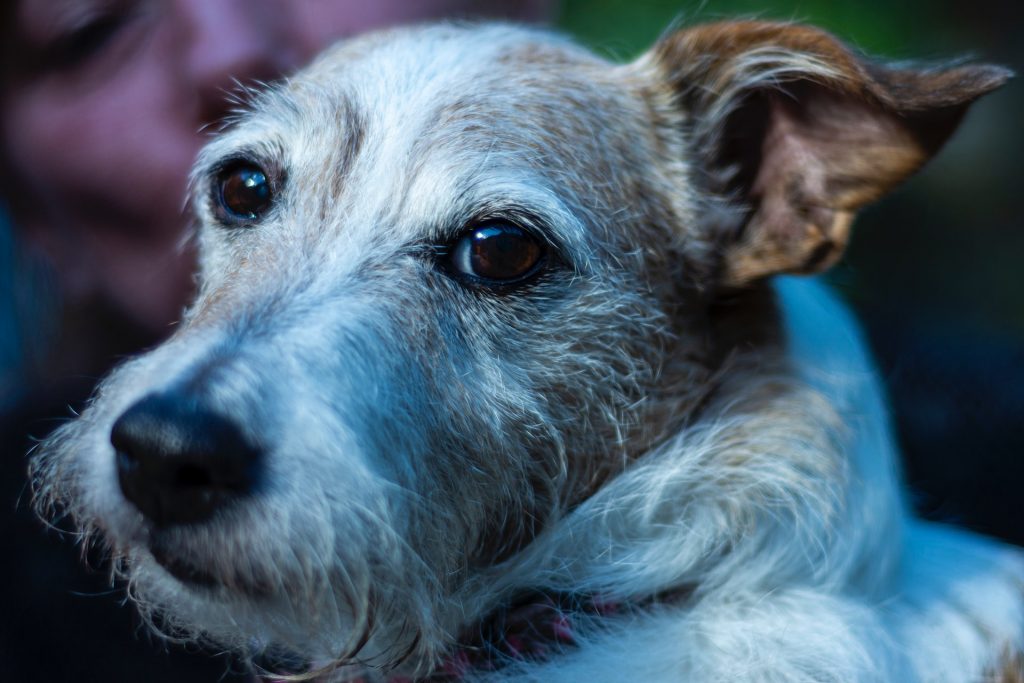
Aging-Related Health Problems You Should Know About
It might get trickier to distinguish age-related changes from diseases in senior dogs. The symptoms of illnesses are poorly manifested, making it easy to overlook and not address them on time. For this reason, it is crucial to realize that older dogs are more susceptible to health conditions like cancer, kidney, liver, and heart diseases.
However, if the diagnosis is made at an early stage of the disease, there is a higher chance to extend your dog’s life for several years. In addition, experts say that sensitivity to medications changes since intoxication may occur due to decreased liver and kidney functions. So, your pet’s age should also be considered when prescribing drug therapy in order not to disturb the delicate balance in an aging body.
Anxiety in Senior Dogs
Anxiety is a widely common issue in dogs, and there are three reasons behind it – separation, fear, or aging. And even though separation anxiety is dealt with during puppyhood, your pet can get anxious about being separated from family members in its later years as well.
However, the most frequently occurring symptoms of age-related anxiety are usually associated with canine cognitive dysfunction (CCD). Many senior dogs experience a significant decline in memory, learning, alertness, and other cognitive skills, leading to increased confusion, irritability, and disorientation. All these changes contribute to anxiety, making your dog agitated and unable to rest.
When it comes to treating anxiety in dogs, you can utilize one of the training strategies, such as desensitization or counterconditioning, or opt for anxiety medications or natural therapies. In any case, you should consult with your vet to determine the best course of treatment and dosages suited for your dog.
Heart Disease
Heart disease occurs in dogs older than five years and can be caused by wear of the heart valves and muscles (consequences of aging) or infections. However, it is necessary to monitor weight in senior dogs because obesity can also lead to heart disease. Symptoms include:
- shortness of breath,
- coughing,
- fatigue,
- swelling of the legs or abdomen
- bluish tongue or gums.
The diagnosis of heart-related issues includes an X-ray examination of the chest, an electrocardiogram, blood pressure testing, and an ultrasound examination.
It is recommended to feed a dog with heart disease food with low salt content and consult with your vet on giving it vitamin supplements. For example, potassium is an electrolyte and a critical mineral for your dog’s health. The lack of potassium is called hypokalemia, and when it occurs, it is accompanied by appetite decline, muscle pain, lethargy, and some other symptoms.
Cancer
The most common form of cancer found in dogs is lymphoma. It begins in the lymph nodes but can spread to any organ – elderly dogs develop tumors. In order to timely detect the disease, it is essential to schedule regular visits to the veterinarian to determine whether these skin neoplasms can be malignant.
It is vital to be mindful of the early-stage signs that might be easy to overlook. Some of the most common cancer symptoms in dogs include lumps and bumps underneath the skin, evidence of pain, changes in bathroom habits, non-healing wounds, etc.
The optimal treatment method will depend on factors like your dog’s exact age and its overall health condition, type of cancer, and its stage. Chemotherapy is a standard treatment that leads to remission in the case of some types of cancer, but other options also include surgeries, radiation therapy, and holistic or herbal therapy.
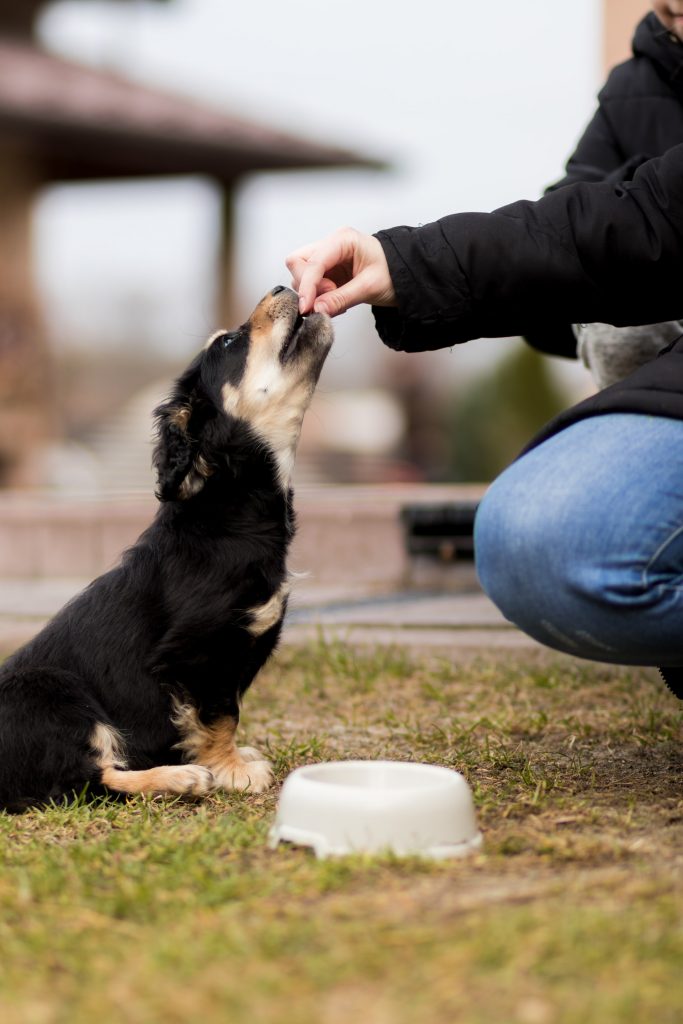
Feeding
As aging entails changes in the dog’s eating habits and overall appetite, monitoring your pet’s nutrition is essential. The optimal diet will allow you to extend the active period of your dog’s life, avoid obesity, prevent the development of several diseases, and mitigate existing symptoms.
General nutrition recommendations are as follows:
- Reduction of caloric content by reducing the amount of fats – the amount of protein should be reduced only if that’s what the vet advises.
- Feeding the dog more often (up to 3-4 times a day) but in smaller portions.
- Avoiding giving it treats from the table.
- Soaking, grinding, or pureeing food – for dogs with teeth problems.
If you feed your dog homemade food, the basis of the diet should be lean meat, vegetables, and cereals rich in fiber. When providing dry food to elderly animals, you should determine the portion volume considering the pet’s weight and the manufacturer’s recommendations. In any case, you should not introduce any dietary supplements into the diet without consulting a doctor. In most cases, a vet will be able to recommend vitamin complexes or dry dog food that contains feed additives, such as omega-6, vitamins A and E.
Walking
Regular physical activity will allow an elderly animal to stay in shape, support metabolism, and improve mood. However, there is a set of factors you should consider when walking with a senior dog:
- It would be beneficial to walk at a slow pace but for longer.
- You should choose quiet places with a soft coating, such as grass, for walking your dog.
- Activity level should be reduced smoothly – for example, it is unnecessary to suddenly forbid a senior dog from communicating and playing with other dogs.
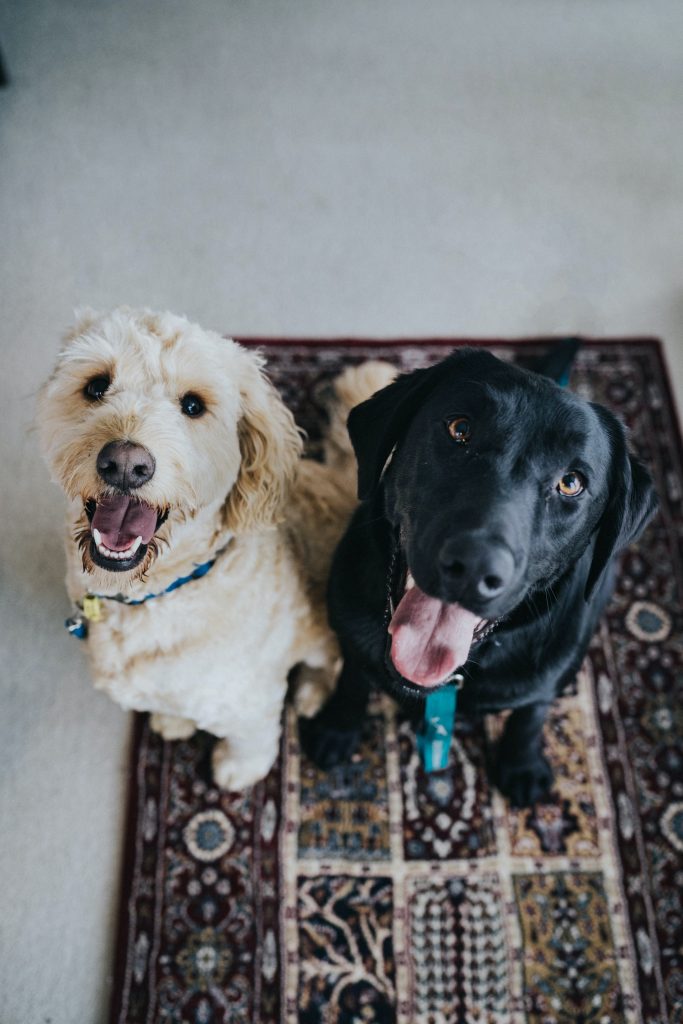
Hygiene and Grooming
An elderly dog should be examined more often – this will make it easier to notice changes in the skin, fur, and mucous membranes, to timely detect the presence of neoplasms.
You will also need:
- Clean the ears with the help of liquids or sprays – this will reduce the risk of exacerbation of otitis media.
- Remove eye discharge with a gauze swab and eye drops.
- Regularly brush your dog’s teeth with a paste and brush and perform dental procedures in the veterinary clinic if necessary.
- Cut the claws – due to the decrease in activity, the pet cannot grind them on its own. At the same time, overgrown claws can further complicate the movement of an elderly animal.
Bathing helps prevent parasitic infestations and dermatitis. The fat layer of an elderly dog recovers more slowly – in the first few days after washing, the animal should be walked less or with clothes put on. However, it is recommended to bathe senior dogs less frequently since they can easily catch a cold due to weakened immunity. In addition, frequent washing can aggravate disorders in the sebaceous glands, provoking even greater dryness or greasiness of the skin and fur.
The molting period lengthens with age, and due to the reduced activity, the wool lingers on the animal’s body, provoking tangles. Combing or trimming is still necessary while being mindful of the condition of your dog’s skin and fur, so you may consider replacing combs and brushes with softer ones if necessary.
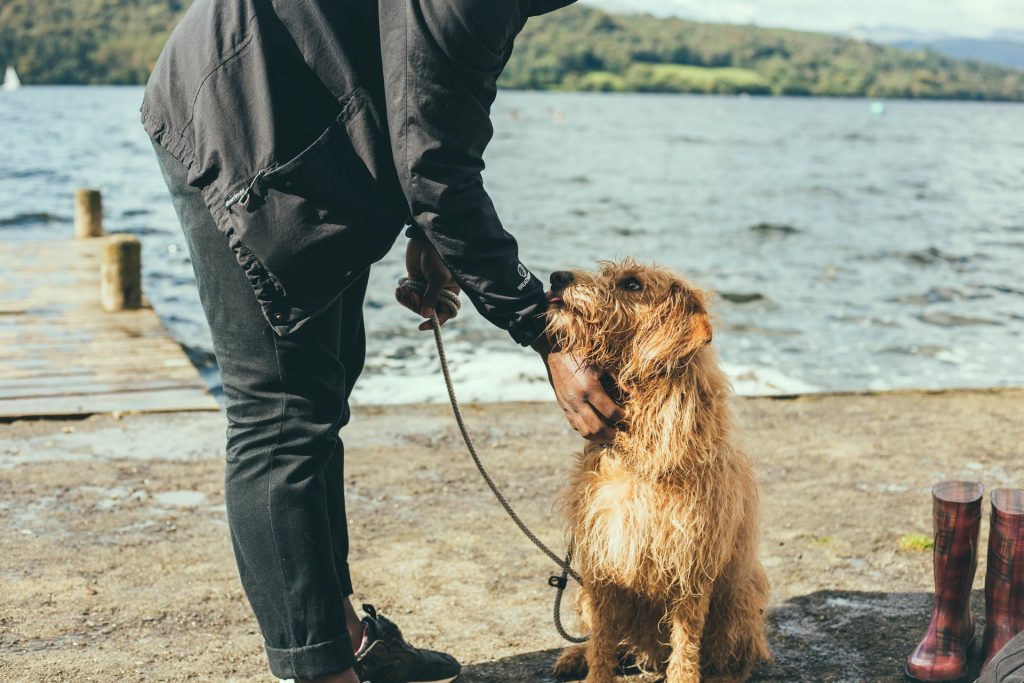
When to See a Vet
When an animal begins to age, it is not easy to draw a line between natural age signs and a disease that has manifested itself. A healthy dog should be shown to a vet twice a year, combining an examination with tests and ultrasound diagnostics. In the presence of chronic diseases, the schedule of visits is usually determined by the veterinarian.
There are a number of signs that can be both a feature of age-related changes and a symptom of the disease in senior dogs. These are the signs you should not ignore, including:
- Fatigue while being walked, shortness of breath, cough – may indicate an exacerbation of heart disease.
- Excessive thirst and frequent urge to urinate – may be a sign of a disruption in the functioning of the kidneys.
- A decrease in appetite and a change in the stool – often provoked by a violation in the work of the digestive organs or impaired liver function.
As a result, a refusal to eat, a sudden increase in fluid intake, a significant weight gain or loss of it are the reasons to schedule an immediate visit to a veterinary clinic.
Final Note
Indeed, it is impossible to stop the aging processes in your dog’s body. However, each pet owner can help the dog prolong its lifespan and then make elderly age as comfortable as possible.
To do this, you will need to pay due attention to your pet and take into account the peculiarities of the age-related organism. It includes being mindful of early signs of potential health conditions, adjusting its diet and walking regimen to changes in its health and behavior, and scheduling regular checkups with the vet.
It is essential to understand that caring for your lifetime companion should be prioritized at every stage of its life. However, senior dogs will require more attention you cannot ignore, and it is your responsibility to ensure that your dog will approach its old age in a good mood.

Rhonda
September 29, 2021 at 4:44 PMVery helpful article. My Buddy is a 16 year old Australian Terrier. He still plays, eats fairly well and seems to be doing ok except for a cough. He will soon be going to the Vet for a Senior wellness exam.
Nancy
September 30, 2021 at 10:05 PMThis is a wonderful article! Very helpful. Please post often so others will see it. Thank you so much! My Buddy is 14.5 yrs old & my Sassy is 10.5. Sassy is a Corgi/Beagle. Precious! My watchdog & my shadow. So far Sassy is doing well but has had bladder stones. She’s been on a special diet & hasn’t not had any issues since. Buddy is a 119 lb Chesapeake Bay Retreiver. He has bad arthritis in his rear legs & hips, as we were told he would develop as he aged. He recently went to a veterinarian who does stem cell replacement & red blood cell treatments. Given his age he couldn’t have the stem cell therapy because it required anesthesia. So he had the red blood cell treatment. He goes back in October for another round. It helped him a lot. He also takes rimadyl and tramadol. He waddles but his pain is much less & so is his stiffness. Thanks again!
Ron Heller
October 1, 2021 at 9:51 PMThank you helps me to understand our aging rescue approx 15 years old.
Sheila moss
October 5, 2021 at 10:08 AMLacey is 17 she recently had bladder surgery for stones. Doing well except
Hearing and sight. Loves greeting people and other. Dogs on our walks. I rescued her
In Hemet when she was about 2 yrs
My buddy and best friend. We are growing old together I am 90.